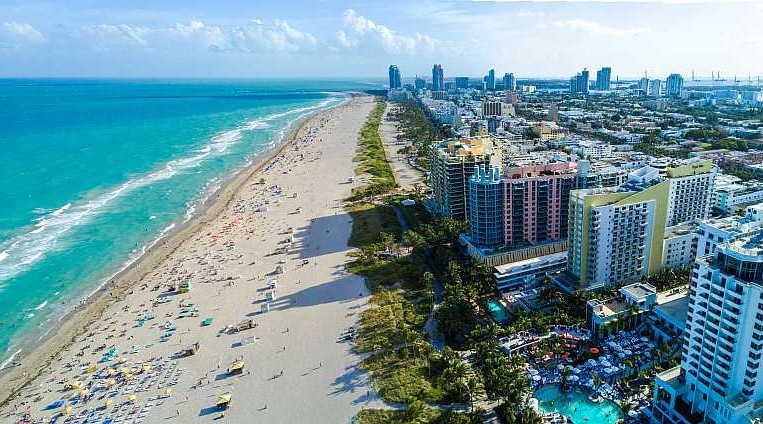The Passover program industry has risen like a phoenix out of the ashes of the COVID pandemic. What is the outlook for 2023?
- The resurrection of a multi-million dollar industry that crashed to zero
- How did COVID change the kosher travel niche?
- What to expect from Passover programs in 2023
In recent years, Passover programs have grown to a multi-million dollar industry. Before COVID, 2020 was expected to be its greatest year, with over 150 Passover programs planned in cities on six different continents — Asia, Europe, Africa, Oceania and the Americas. We all know what happened that year. All travel activity, including Pesach vacations were canceled, just a few weeks before Passover. Program operators were dealing with an unprecedented situation with no choice but to cancel programs and nobody was prepared, not operators and not the guests. For many families, including the tour operators, this was their first time making Pesach.
Chaos — The Pesach travel industry crashes
Corona caused devastating damage to the travel industry and practically shut down global tourism for at least six months. The following months were full of uncertainties with border closings and COVID restrictions. There was limited travel in 2021 for those that could overcome fears of the pandemic and risks of cancellations due to illness. In most cases, travel insurance, for those who purchased it, did not offer any compensation since travel was shut down by governments, as an emergency reaction, and did not cover losses of travelers or kosher travel operators.
The Passover program market received an unimaginable hit, which affected the industry and the travelers in a stronger way, mainly because a Passover vacation program is not like any other kosher vacation. Kosher vacations during the year require kosher food, synagogue with a Torah and other services depending on the crowd. Passover is unique and different for what is not served at the luscious buffets and tea rooms — Chametz. According to Jewish law, chametz is defined as food products made from wheat, barley, rye, oats or spelt that come into contact with water and are allowed to ferment and rise. It is strictly forbidden to consume, use or possess any chametz during the holiday of Pesach. There are other food restrictions depending on personal customs and the programs need to take these into account.
Passover Programs in the aftermath of COVID
Passover 2021 was slow but families were ready to get out of the house and join programs. There were few programs in 2021. Israel reopened just a few weeks before Pesach so Passover programs in Israel could mainly host guests from Israel. There were limited programs in the U.S., Mexico and Dubai while Europe was mostly closed to tourists.The programs that did operate ran at 50% capacity, at best compared to previous years. There was little international travel at this time, due to border closures and COVID restrictions. In general, people went to programs that they could drive to or fly domestically.
By Passover 2022, most countries were open and restrictions were lifted. Some countries still required testing before flying but most countries did away with testing by the summer travel season. There were a lot more Passover programs in 2022 with options in the USA, Europe, Mexico, Morocco, Dubai, Panama and Israel. Florida was popular in 2021 and for Passover 2022 with programs selling out very quickly and many programs had waiting lists. Last year, most Passover programs sold out early as more people were vaccinated or recovered from COVID, and they were less afraid of traveling and being around other people.

Covid-19 vaccine. (Envato)
Long-term effects of COVID on the industry
Some of the changes that came out of the COVID pandemic are for the better and are here to stay. One of the biggest changes in the travel industry is that more people are investing in travel insurance. When programs were forced to cancel in 2020, something which had never happened before, everyone was caught unprepared. It has since become regular practice for travelers to purchase travel insurance to cover canceled flights and canceled programs.
Most Passover programs recommend purchasing travel insurance. In hindsight, it makes sense that people spending thousands of dollars on a Passover program or any vacation should purchase travel insurance. There is also the issue of getting COVID while in a foreign country. Some countries required COVID insurance so as not to incur the costs of tourists’ COVID-related medical expenses. Travelers needed insurance to cover medical and hotel bills in case they got sick while on vacation.
Another change brought about by COVID are clear cancellation and refund policies. The Passover program industry was solid before COVID with programs taking place according to plan year after year. People didn’t ask about refund and cancellation policies and many operators didn’t have one in place. Now program operators have policies in place and guests compare and check those policies.
Outlook to the Future of Passover Programs
After the success of Passover programs in 2022, the upcoming Passover is anticipated to be on par with pre-COVID times or even exceed what was before. At the moment, the global travel industry is facing serious challenges, due to inflation and some COVID after effects. Even with these challenges, the summer vacation season is very busy with flights overbooked and airports packed with travelers. Sukkot programs are also back strong for 2022 with programs filling up quickly. The Pesach program market has grown significantly and is successful because Pesach is a lot of work; cleaning, shopping and cooking. With kids and many adults on vacation, Pesach is a great opportunity for a family vacation.
According to Raphi Bloom from TotallyJewishTravel.com on what to expect for Passover 2023: “We have seen global tourism rebound in 2022 and this is no different in the kosher travel market. If the demand for Kosher summer and Sukkot vacations is anything to go by, the demand for Passover vacations in 2023 will be at pre-pandemic levels. Of course, issues with flights and cancellations — if not rectified by the industry before Passover 2023 — will mean travelers will need to plan even more carefully and the rising prices of food all over the world will also mean that Passover program prices will inevitably rise. However, even with all those issues, Passover 2023 is on track to be a strong year for the industry with programs operating at full capacity and new locations coming online.”
Conclusion
Passover programs, along with the entire travel and tourism industry, were hit hard by the COVID pandemic. More than two years later, people have moved on and learned to live with COVID. Travel and tourism, in general, have come back strong in 2022. The industry is having a hard time keeping up with the demand. Passover programs were very successful in 2022 with programs selling out early. It looks like there will be more programs to choose from in 2023 as most countries are open to tourists. As prices in all markets have gone up, expect program prices to increase as well. It is not too early to research and see what Passover programs are being organized for the upcoming Passover holiday. Don’t wait until the last minute or you might get stuck at home cleaning and cooking.

